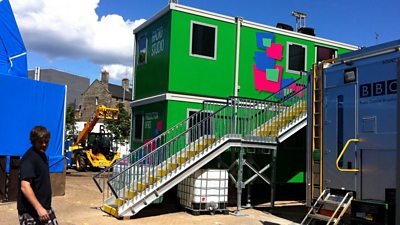The senior OB Supervisor or Engineering Manager must complete a technical risk assessment prior to this activity taking place.
What Can Go Wrong?
- Rigging a venue is a skilled job. If not carried out correctly there are multiple risks to staff and members of the public.
- OB cables can cause trip hazards to staff and members of the public if not correctly rigged.
- Microphone stands and PA speaker stands can cause injury to anyone nearby should they topple over.
- Suspending microphone slings across a venue could potentially cause injury to people beneath the working area if items were accidentally dropped.
Legal/91�ȱ� Requirements
- Depending on the scale of the activity, the rigging element may have to be done under the Construction, Design and Management Regulations 2015 (CDM 2015), and the electrical element would need to comply with BS7909 that covers Electrical Safety at Events.
Control Measures
General Controls
- Ensure the management of the venue is aware of the rigging activity before work commences.
- Only trained staff or contractors should be employed to carry out the rig. They would normally be under the control of the OB Sound Supervisor, Engineering Manager or Rigger Supervisor on site. See 'OB Riggers' (Related Topics)
- Follow any safe working procedures as described by the venue management.
Working with other Organisations; Conflict of Method
OB Sound Supervisors/Engineering Managers must ensure there is adequate communication and co-operation with any other organisation/venue staff/contractor to minimise the possibility of any conflict of method.
The 91�ȱ� does not insist that other organisations use its safety rules; however it does require that the standards used are compatible with 91�ȱ� methods. It is important to be able to distinguish between the standard and the method because:
- Other people may have satisfactory standards, but entirely different methods.
- Two methods of work which are individually safe can on occasions combine to create a dangerous situation because of an incompatibility between the systems.
The responsible OB Sound Supervisor/Engineering Manager should not assume that another organisation will do things the way the 91�ȱ� do. Nor should it be assumed that a different method is necessarily less safe. You can tell what needs to be done, but must not dictate how it should be done. Once agreed, the arrangements made should be monitored to ensure that they are working effectively.
- Care must be taken when transporting equipment into the venue to prevent damage or injury.
- The OB trained staff must ensure that all stands and other equipment are erected correctly and secured to prevent them from toppling over.
- See useful documents for an explanation of the Knots and Hitches in Rigging.
Cabling
- Where cables leave the OB truck they should ideally be 'flown' over any public footpath at a height of at least 3.5 meters.
- If a cable must cross a highway, permission will be sought from the local council. The cables must be flown at a minimum height of 6 meters to allow the passage of buses and emergency vehicles.
- Wherever possible cables will be routed next to walls once they enter the building.
- Once inside ensure loose cables do not cross walkways. Wherever possible fly cables over the walkway. If this is not possible cables must be either ramped or matted and taped down to prevent trip hazards. Warning signs should be erected to warn passers by. Ramps over cabling are required when dealing with large cables (i.e. mains 63A cables) or when disability access is to be maintained.
- Cables must not cross fire exits at ground level. They must be hoisted up and secured over the door frame.
- Where access points have been provided, through the walls by fire doors for example, ensure that any ‘fire stopping’ materials provided are used to re-seal the access point after the cables have been routed through.
Working with Fibre Optic Cables
There are several hazards associated with fibre optic cables; danger from glass shards and danger from the laser beams contained within.
- Never look down the end of a fibre optic cable to check that the cable is not broken.
- Never attempt to repair a damaged fibre optic cable when out at an OB, unless you are competent to do so.
- Repair of fibre optic cables requires; specialist knowledge, equipment and training.
- If a fibre optic cable is not working correctly and/or damaged, label the cable accordingly and store safely for further investigation to be carried out in a 91�ȱ� workshop, after the cable has been returned from the OB.
Safety Bonds
The need to protect overhead rigged connections with safety bonds must be considered during the planning phase and noted in the risk assessment.
- All items of equipment rigged at height, including microphone slings, will be secured with an appropriate secondary means of fixing, (safety bond).
- Bonds must be maintained in good condition with their Safe Working Load (SWL) clearly displayed. Damaged bonds must be removed from use and replaced immediately.
- Safety bonds must be regularly tested, inspected and certificated between manufacture and use.
- Bonds must be visually checked each time they are used.
- Bonds must be appropriate and strong enough for their purpose allowing a free drop of no more than 150mm.
The bonds should be strong enough to support the weight of the equipment, including all accessories, and to take the shock load produced should the main fitting fail.
Microphone Slings
- Microphone slings must only be erected and rigged by trained and competent sound staff.
- The work requires a minimum of three people, one each side of the sling and one on the stage or arena below.
- Radio communication between the three people should be maintained throughout the operation.
- The area below the slinging operation should be kept clear of all personnel not involved in the work until the rig is secured.
- Under no circumstances should the staff either side of the sling stretch or lean over balcony barriers. Depending on the architecture of the balcony it may be necessary for the staff to wear restraining belts and lanyards to prevent them leaning over the safety rails and thus putting themselves at risk.
- Where required specialist tools can be provided for holding the slings rather than trying to grip wire rope with your hands. Ensure these tools are used when appropriate.
Division Specific Issues
Radio and Education
- Incorporating Radio OB MS;
- G003-09 Hazards Associated with Fibre Optics
- M006-09 Selection of internal Control Points (see below)
- M012-09 Venue Rigging
- M016-09 Safety Bonds
Selection and Use of Internal Control Points
When it is not possible, or desirable to use a fitted control vehicle, the OB Sound Supervisor/Engineering Manager will often opt to use to use a room within the premises where the outside broadcast is taking place as the technical control point.
The selection of this room will depend on a number of factors:
- Ease of access to the room for loading of equipment.
- The times at which access to the room is possible.
- The exclusivity of use of the room. Although not desirable, there are times when the 91�ȱ� may be forced to share a room. The impact of this arrangement must be measured by the OB Sound Supervisor/Engineering Manager, ideally at the time of the site survey.
- The security arrangements; especially if equipment is to be left unattended for long periods of time, or overnight.
- Access for both the staff and necessary cables between the control point and performance area.
- Sound isolation from the performance area is essential, although if this is not possible monitoring of the programme may take place on headphones.
- The personal safety of staff is paramount; this especially applies in situations where events are being held in nightclubs or similar premises where there is a higher than usual risk of violence. In these situations the room selected for a control point will always be in a private backstage area, and will have at least two means of emergency escape routes. As a minimum standard, one of the escape routes will not pass through any of the public areas of the venue.
If the OB Sound Supervisor/Engineering Manager deems it necessary, he or she are within their rights to ask for personal security to protect the control point area, or if the situation deteriorates to an unacceptable level to abandon the programme and leave the control point immediately.
- The OB Sound Supervisor/Engineering Manager will always follow the local advice regarding fire alerts and evacuations. If a fire alarm evacuation sounds, the 91�ȱ� Outside Broadcasts staff will leave the building, ensuring that as far as possible that all production colleagues are aware of the alert and have evacuated the affected area. The OB Sound Supervisor/Engineering Manager will ensure that all members of his team are safe and have left the building. No member of the team will re-enter the premises until the “All Clear” has been given by the building’s Fire Officer or other designated official. In all cases 91�ȱ� staff will adhere to instructions given by police officers.
- The mains supply in the room will be tested prior to use, and its safety ascertained before any 91�ȱ� equipment is powered from the supply. If the supply is unsafe or inadequate for the task alternative means of powering will be sought.
- The selected room will not feature any of the following hazards: Unguarded machinery, unsafe electrical supplies, chemical storage and the OB Sound Supervisor/Engineering Manager will ensure that the venue management do not change the use of the room between the site survey and the date of usage of the room for broadcast.
The OB Sound Supervisor/Engineering Manager will always have the discretionary right to deem the room unsuitable for whatever reason where the Health & Safety of the 91�ȱ� Radio OB team is threatened.
FAQs/Did You Know?
- It is illegal to cable across a public road without Local Authority permission.
- The safest place in the event of an electrical storm is inside the vehicle with doors and windows closed. The vehicle will act as a Faraday cage in these circumstances.
Useful documents
Outside Broadcast topics
-
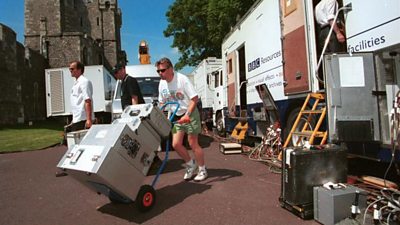
Broadcast Vehicles
A guide to broadcast vehicles including, satellite vehicles, radio cars and uplink vehicles etc. -
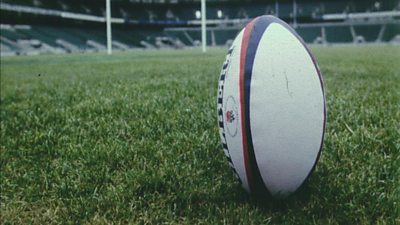
Broadcast: Presentation and Linking Positions
Presentation or linking from purpose-built studio facilities. -
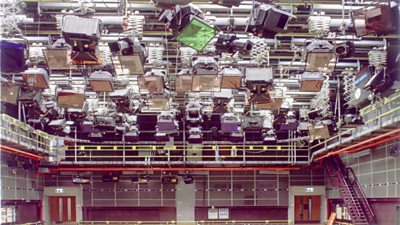
Electrical Safety in Studios
A guide to using electrical equipment in studios. -

OB Venue Rigging
Rigging a TV or Radio OB venue can be a multi-hazard activity which should be carried out by competent personnel only. -

OB Riggers
Competence criteria for OB riggers. -
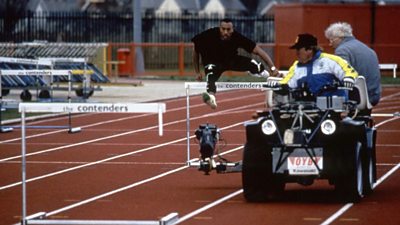
Sports Events: Recording or Filming
Guidance on filming on track/pit side. -
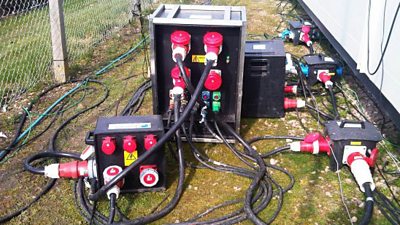
Temporary Electrical Systems and BS 7909
A guide to using electrical equipment on location. -
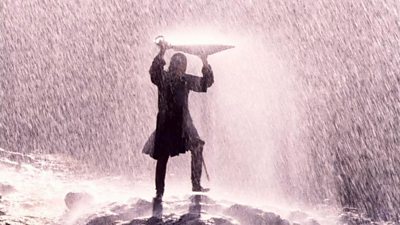
Weather
Guidance on working in different weather conditions. -

Working on Broadcast Gantries & Platforms
Working on media positions provided primarily within stadiums.
More from SSR
-
Your platform to record accidents, risk assessments, assurance monitoring and inspections
-
Safety Equipment Stores
Just one number to call: 020 3614 5155 -
91�ȱ� Safety Guidelines
An A-Z of 91�ȱ�'s Health and Safety Guidelines -
Safety Advice Line: 0370 411 0464 Email: safety@bbc.co.uk
Events guidance - key links:
- Exhibitions
- General Guidance
- Indoor Location Recce Checklist
- Outdoor Location Recce Checklist
- Major Incidents & Emergency Planning
- Marketing and Promotional
- Noise Exposure
- Planning and Management
- Responsibilities
- Responsibilities Form
- Laser Lighting Effects
- Strobe Lighting
- Temporary Stages and Rostra
Health topics - key links:
- (91�ȱ� network only)
- Contributors Fitness to Participate
- Display Screen Equipment (DSE)
- (91�ȱ� network only)
- First Aid and Welfare on Location
- International Travel - Risks & Health
- Manual Handling
- Mental Health: 91�ȱ�page
- (91�ȱ� network only)
- Personal Health and Wellbeing
- Pregnancy
- Psychological Trauma Support & Trauma Risk Management (TRiM)
- Tiredness and Fatigue
- Travel Health Contacts
91�ȱ� High Risk - key links:
- CBRN and Industrial Spills
- Covert Filming
- Crisis Management and Security Support
- Demonstrations, Protests and Crowds
- Disaster Coverage
- Door Stepping
- (91�ȱ� network only)
- (91�ȱ� network only)
- Public Order
- Safety Equipment Stores
91�ȱ� Journalism - key links:
91�ȱ� Productions - key links:
- Aerial Filming and Airfields
- Animals: Displaying and handling for performance
- Boats: Working on
- Children and Young People
- Driving
- Electrical Equipment and Systems
- First Aid and Welfare on Location
- Food Safety (Cooking and Catering)
- Remote Location Working
- Roads and Streets: Working by
- Security of Productions on Location
- Stunts
- Tiredness and Fatigue
- Unmanned Aerial Systems (UAS aka Drones)
- Vehicles: Recording in, from and around
- Working at Height: Mobile Elevating Work Platforms
- Working at Height: Tower Scaffolds
91�ȱ� Radio - key links:
- (91�ȱ� Network only)
91�ȱ� Security - key links:
91�ȱ� Sport - key links:
About this site
This site describes what the 91�ȱ� does in relation to managing its health, safety and security risks and is intended for those who work directly for the 91�ȱ�.
It is not intended to provide instruction or guidance on how third parties should manage their risks. The 91�ȱ� cannot be held liable for how this information is interpreted or used by third parties, nor provide any assurance that adopting it would provide any measure of legal compliance. More information
Some links on this site are only accessible when connected to the 91�ȱ� network
